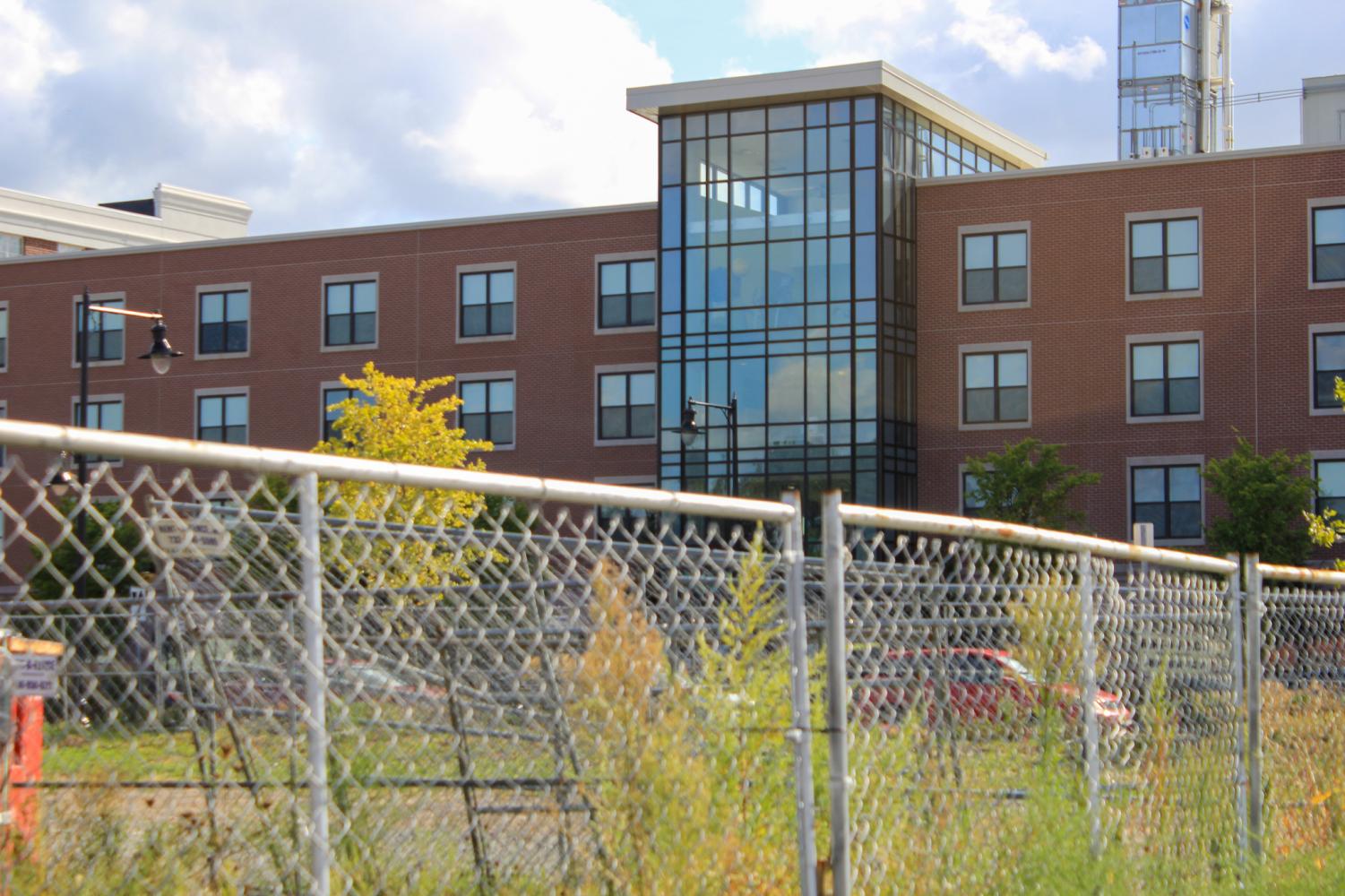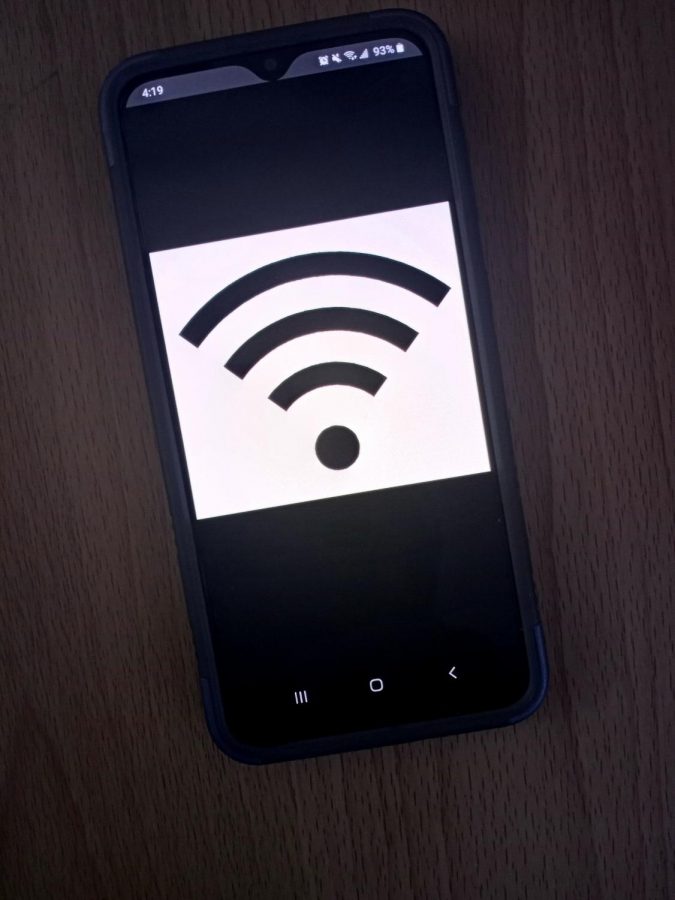Wifi On Campus: It’s All About Connection
February 23, 2021
Students have been raising concerns about the quality of internet connection at NJCU throughout all three dorms and main campus buildings. This interferes with their educational and recreational online activity.
The Wi-Fi connection has been an ongoing issue since West Campus Village opened in 2016. Wi-Fi is vital as many students have enrolled in online learning due to COVID-19. Vice President of Public Relations and Marketing of the Student Government Association (SGA) Alan Cruz said in a Zoom interview, “I believe that people notice it a little more now because of how in-demand the Wi-Fi is… students need it more so obviously they are going to notice issues more often now, but I think it has been an ongoing issue, in my experience.”
In early October, the department of Information Technology (IT) met with SGA to discuss disproportionate laptop distribution among students, and the Wi-Fi issue was brought up. IT said that they were filing a comprehensive report including the strength of the Wi-Fi throughout campus buildings, records of issues that were reported, and other information.
The Student Perspective
NJCU students’ experience with the Wi-Fi on campus varies widely. Some students have briefly discussed having connectivity issues on the Student Feed of the NJCUmobile app. Other students have experienced little to no issues and use laptops, phones, and gaming devices stress-free.
Synchronous classes on Zoom tend to be a different story, as some students experience Wi-Fi interruptions that interfere with their participation. Cruz said he has experienced this firsthand: “I’ve dealt with professors who get frustrated at students over Wi-Fi issues.”
Kathiana Dambreville, junior and Finance major, said in an email interview that while the internet connection at West Campus Village is generally sufficient, there is a lot of room for improvement, “The Wi-Fi is definitely not the best quality, it has a lot of restrictions, such as doing Whatsapp video call. I have not reported any issues concerning the Wi-Fi, but I did ask a few students on the mobile app if I was the only one having problems with it. Overall, I will give it a 6 out of 10, because I can get most of my work done. It might not be at the speed that I wanted and not as consistent as it should have been, but still helpful.”
The IT Department Perspective
According to IT, the main problem with addressing the situation is that most students who have issues with Wi-Fi have not been directly communicating with the department to report these problems.
“If the students are concerned about the Wi-Fi, so are we. I’m concerned that they’re concerned,” said Robert Scire, director of Networking and Information Security.
Scire continues: “We continuously monitor the Wi-Fi system on campus. We have a state-of-the-art system from Aruba Networks that’s basically been installed for a long time, so it kind of concerns me when there are issues. If there were issues, we’re not aware of them, because we proactively monitor the network; we monitor the wireless to ensure that all devices are up and running.”
After concerns regarding Wi-Fi quality were brought up in administrative meetings, IT hired a company to run a health-check on the university’s wireless network. Scire said, “The dorms at West Campus have the latest and greatest access points. That’s a new generation, they’re still supported, and they said that those are the access points that should suffice to support that building”.
The department also mentioned plans to install upgrades to the network systems in the Co-Op and Vodra Hall dorms.

What Causes Wi-Fi Issues?
Scire and Network and System Administrator James Musante identified various possible causes of internet connectivity issues in an interview.
One of these potential causes is the type of device being used. Most of the Help Desk request tickets received by the IT department are of this nature. “Usually at the beginning of the semester, there’s a trove of calls that generally point to device connectivity, getting Amazon Fire Sticks and PlayStations and gaming systems and devices that require specific algorithms to connect security-wise,” Musante said.
Students with Chromebooks experiencing Wi-Fi trouble are instructed to contact the Help Desk in particular. Although NJCU’s network does support Chromebooks and they definitely should work on campus, there are cases of internet quality issues since Chromebooks have a single Wi-Fi antenna whereas standard laptops usually have two. This feature contributes to the relatively low cost of the device, but it can result in a weaker signal. IT stresses that this is not an attempt to make excuses for unsatisfactory Wi-Fi service.
IT suggests that some students may not have read the device registration instructions provided on NJCU’s website as some of the calls made to the Help Desk turn out to be an easily fixable issue. One example is an incorrect MAC address (the address that identifies the device to the network). However, IT claims that very few students reach out when they experience problems with the actual network that do not involve getting connected for the first time.
Another possible origin of the Wi-Fi issue is the location of access points in dorms. There is a wireless access point located in the common room of each West Campus Village dorm. Scire reflects that there is a possibility that access points were not placed in the optimal position in some dorm rooms if students are experiencing problems with the network.
Both Scire and Musante emphasize that the source of a student’s difficulties cannot be determined unless that student calls in to report them.
Resolving the Issue
Reported issues with Wi-Fi in the dorms are generally addressed by the IT Department on a case-by-case basis by either speaking with the student or visiting the student’s dorm to check if access points are functioning properly.
Representatives of the department strongly suggest that students call their Help Desk about Wi-Fi problems instead of waiting for them to subside. Any student experiencing internet-related issues should seek assistance in one of the following ways:
● Call 4357 when on campus, or 201-253-4357 when off campus
● Send an email to [email protected]
● Visit the IT Help Desk which is located in the Professional Studies Building, room P-103 (Hours 8:30am to 6:00pm Monday to Friday)
● View Wireless Device Registration Instructions at https://guestaccess.njcu.edu/guest/public/default.html
When asked in an interview if Wi-Fi quality would be prioritized going forward, Cruz said, “I think it is a priority for the university, especially after it’s been mentioned. I can say that a lot of the meetings we’ve held this semester with the administration have gone very well, and the issues that we’ve brought up have been fixed, or a plan has been brought up”.












